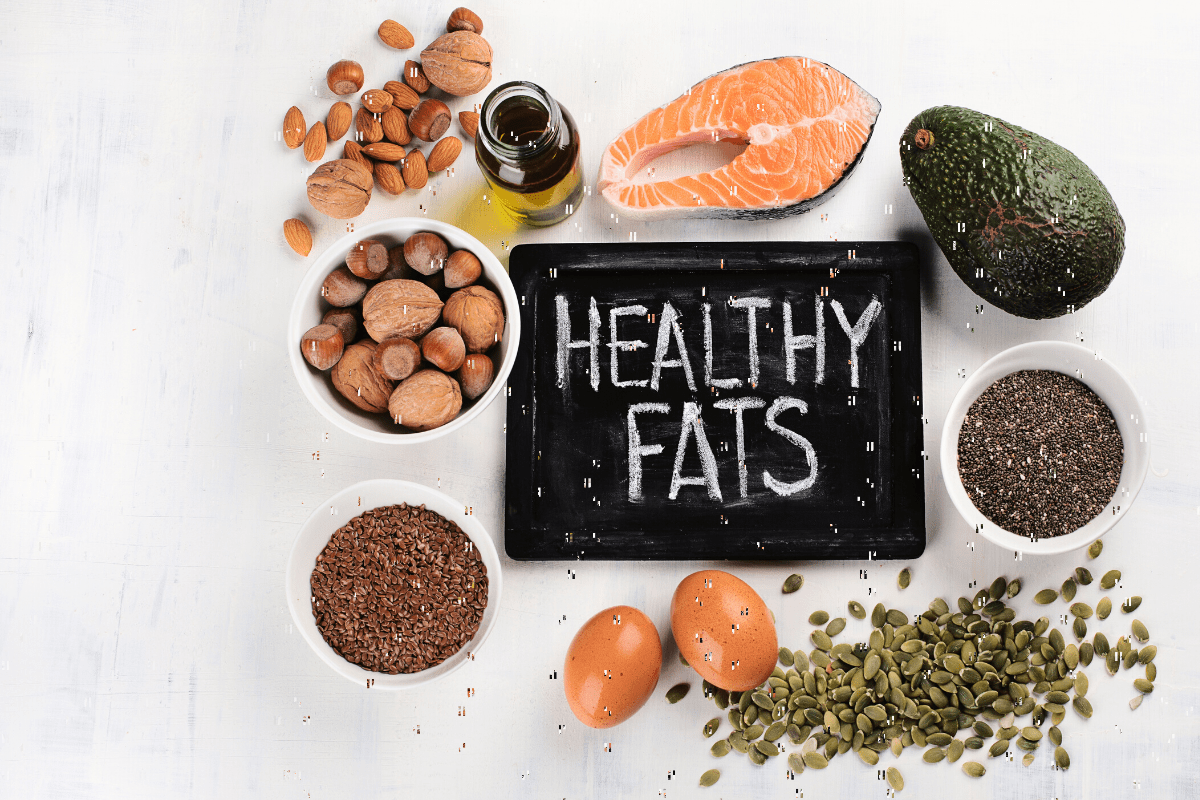Muscle recovery is crucial for anyone looking to improve their fitness and performance. After an intense workout, your body needs the right tools to heal and get stronger. Choosing the best supplements for post-workout recovery can significantly enhance your muscle recovery and set you up for better results in future workouts. With so many options available, it can be overwhelming to determine which products actually deliver the benefits you need.
This article will explore various supplements designed to speed up recovery and help you bounce back faster after each session. From protein powders to creatine, you’ll learn about the top muscle recovery supplements that can take your fitness routine to the next level. Whether you’re a beginner or an experienced athlete, understanding these options can make a real difference in your recovery process.
In addition to supplements, proper nutrition and hydration play key roles in muscle recovery. You will discover how combining these elements with the right supplements can optimize your recovery strategy. By the end, you’ll have the knowledge to choose the best muscle recovery supplements suited to your needs.
Key Takeaways
- Select supplements that support muscle recovery and enhance performance.
- Proper nutrition and hydration are essential for optimal recovery.
- Understanding your body’s needs can help you choose the right recovery tools.
Understanding Muscle Recovery and Supplements
Muscle recovery is crucial for anyone who engages in regular exercise. It involves various processes that help your muscles heal, rebuild, and grow stronger after a workout. Utilizing the right supplements can enhance this recovery process effectively.
The Science of Muscle Recovery
Muscle recovery takes place after exercise, during which your muscles repair and grow. When you work out, tiny tears form in muscle fibers. This leads to muscle soreness and fatigue. The body responds by repairing these tears through a process called protein synthesis. This process involves amino acids, which are the building blocks of proteins.
Increased protein synthesis helps you build muscle, important for strength and performance. Factors such as hydration and adequate rest also support recovery. Monitoring these areas is vital for a fast and effective recovery after intensive workouts.
How Supplements Support Recovery
Supplements play an important role in muscle recovery. They provide essential nutrients that might not always be consumed in your regular diet. Protein powders, for example, are popular as they quickly provide the amino acids necessary for recovery. Branched-Chain Amino Acids (BCAAs) can help reduce muscle soreness and aid recovery by promoting muscle protein synthesis.
Electrolytes in supplements help replenish lost minerals after intense sweat loss. These are critical for muscle function and hydration. Some supplements contain adaptogens, which can lower stress levels and promote recovery. With the right balance of supplements, you enhance your recovery process and overall performance.
Types of Recovery Supplements
Different types of recovery supplements are available to help you after workouts. Here are some key categories:
- Protein Supplements
These include whey, casein, and plant-based proteins. They support muscle repair and growth by providing necessary amino acids. - BCAAs
They consist of three essential amino acids: leucine, isoleucine, and valine. BCAAs can reduce soreness and improve recovery speed. - Electrolytes
These help you replenish minerals lost through sweat. They maintain hydration and muscle function. - Creatine
A popular choice that enhances strength and muscle recovery by helping with energy replenishment during exercises.
Using the right mix of these supplements can provide the edge you need for effective muscle recovery.
Key Supplements for Enhanced Recovery
Post-workout recovery is crucial for muscle repair and growth. Several key supplements can aid in this process, helping you feel better and perform efficiently in your next workout. Consider the following options that focus on essential nutrients for optimal recovery.
Protein and Amino Acids
Protein is vital for muscle repair and growth after exercise. You should consider using protein powders that are easy to digest and absorb quickly. Whey protein is popular due to its high biological value, meaning your body can use it effectively.
Amino acids, especially L-leucine, are significant for rebuilding muscle tissue. Other important amino acids include L-isoleucine and L-valine, which collectively form the branched-chain amino acids (BCAAs). They help reduce muscle soreness and boost recovery times.
Creatine Monohydrate
Creatine monohydrate is one of the most researched supplements in sports nutrition. It works by supplying your muscles with the energy needed during high-intensity workouts. Taking creatine can increase your strength and performance, which indirectly aids recovery.
Regular use of creatine may help replenish ATP (adenosine triphosphate) levels. This rapid energy source is essential for intense workouts. With enhanced strength, you can push your limits while supporting faster recovery times.
BCAA: Branched-Chain Amino Acids
Branched-chain amino acids (BCAAs) play a significant role in muscle recovery. This group includes L-leucine, L-isoleucine, and L-valine. These amino acids are unique because they can be metabolized directly by muscle tissue, allowing for quicker recovery.
BCAAs can reduce muscle soreness after workouts. Taking them before or during exercise may decrease fatigue and improve performance. They can be found in powder form or as part of protein supplements, making them easy to incorporate into your routine.
Specialized Recovery Formulas
Specialized recovery formulas are designed to enhance muscle recovery specifically. These often include a mix of protein, BCAAs, and other beneficial ingredients. You should look for options that contain L-glutamine, which helps with muscle repair and boosts immune function.
Some products contain carbohydrates alongside protein to replenish glycogen stores after workouts. BetaTOR is another ingredient found in advanced recovery supplements that can support muscle growth and strength. These formulas provide a convenient way to address post-workout nutrition effectively.


Nutrition and Hydration for Recovery
Nutrition and hydration play crucial roles in muscle recovery after exercise. Getting the right balance of macronutrients and staying hydrated can help improve your recovery time and overall performance. Here’s a closer look at the specifics.
The Role of Macronutrients
Macronutrients include proteins, carbohydrates, and fats. Each of these nutrients has a vital role in your recovery after a workout.
- Proteins help rebuild muscle tissue. Aim for lean sources like chicken, fish, and legumes. A good target is 20-30 grams within 30 minutes post-workout.
- Carbohydrates replenish glycogen stores depleted during exercise. Whole grains, fruits, and vegetables are excellent choices. A ratio of 3:1 carbs to protein is often recommended to maximize recovery.
- Fats are slower to digest but provide long-term energy. Healthy fats from sources like avocados, nuts, and olive oil support your overall diet.
Hydration and Electrolytes
Staying hydrated is key to efficient recovery. Water is essential, but sometimes, you need more than just plain water.
- Electrolytes, such as sodium, potassium, and magnesium, help maintain fluid balance. You lose electrolytes through sweat, particularly during intense workouts.
- Consider sports drinks or electrolyte-rich foods like bananas and yogurt. These options help replace lost minerals and support muscle function.
- Aim to drink water regularly throughout the day. A general guideline is to drink at least half your body weight in ounces each day, increasing this amount after workouts.
Influence of Diet on Recovery
Your overall diet can significantly affect how well you recover. A balanced diet sets the foundation for good recovery.
- Focus on whole foods: These include fruits, vegetables, whole grains, and lean proteins. Avoid processed foods high in sugars and unhealthy fats.
- Meal timing is important. Eating a balanced meal or snack within two hours post-exercise can enhance recovery.
- Consider anti-inflammatory foods, like fatty fish, berries, and leafy greens. These foods may help reduce muscle soreness and promote faster recovery.
By paying attention to your nutrition and hydration, you can support muscle recovery and stay on track with your fitness goals.
Secondary Factors in Muscle Recovery
Several important elements can enhance muscle recovery after exercise. Sleep, natural supplements, and lifestyle choices play significant roles in how quickly and effectively your muscles recover.
Sleep and Muscle Repair
Sleep is essential for muscle repair and overall recovery. During deep sleep, the body produces growth hormone, which helps in tissue growth and muscle recovery. Aim for 7 to 9 hours per night for optimal results.
The relationship between sleep and melatonin is also vital. Melatonin can help regulate your sleep cycle, making it easier to get quality rest. Poor sleep can lead to increased muscle breakdown, slowing your recovery process.
Consider creating a sleep-friendly environment. This includes reducing light, avoiding screens before bed, and maintaining a cool room temperature.
Natural Supplements for Recovery
Incorporating natural supplements can help enhance muscle recovery. Some popular options include branched-chain amino acids (BCAAs), which provide essential amino acids that support muscle repair. Aim for a daily intake of 2-10 grams, mixed with carbohydrates for the best effect.
Creatine is another helpful supplement. It can improve muscle recovery by supplying your muscles with energy and enhancing anabolic signaling. Taking 1.5 grams of creatine HCl post-workout can be beneficial.
Consider adding polyphenols from fruits and vegetables to your diet. They help reduce inflammation and oxidative stress after exercise. Foods rich in antioxidants can support your recovery by combating muscle damage.
The Impact of Lifestyle Choices
Your daily habits can significantly affect muscle recovery. Alcohol consumption can hinder recovery by disrupting sleep patterns and promoting muscle breakdown. It’s best to limit alcohol intake if you want to see better recovery results.
Moreover, a healthy diet rich in protein supports muscle repair. Incorporating plant-based proteins can benefit those on a vegan diet. Foods such as lentils, chickpeas, and quinoa are great options.
Minimizing artificial sweeteners may also help, as some studies suggest they can impact gut health and inflammation, negatively affecting recovery. Focus on whole foods for your post-workout meals for the best outcomes.
Choosing the Right Recovery Supplements
When selecting recovery supplements, focus on key factors like cost-quality balance, third-party testing, and user experience related to taste and solubility. Understanding these elements will help you make informed decisions.
Cost and Quality Analysis
Cost matters when choosing recovery supplements. It’s essential to find products that fit your budget while delivering quality ingredients. Look for complete proteins that are effective but not overpriced.
Consider supplements that offer value, like larger containers of powders or bundles. Many of the best post-workout supplements, such as Legion Recharge and Transparent Labs POST, provide high-quality ingredients at competitive prices.
Start by comparing supplements in terms of price per serving. This approach allows you to identify which products offer the best value for your money without sacrificing quality.
Third-Party Testing and Certification
Choosing supplements that undergo third-party testing adds an important layer of trust. Certifications like Informed Choice Certified help ensure the product is free from harmful substances and meets quality standards.
Look for products that display these certifications on their labels. This guarantees that what’s in the bottle matches what’s on the label. Doing this can help you avoid supplements that may contain banned substances or lower-quality ingredients.
Many well-known brands prioritize transparency, sending their products for regular testing. This commitment shows they value your safety and satisfaction as a consumer.
Taste, Solubility, and Convenience
Taste and solubility are crucial for regular use of supplements. A product that mixes well and tastes good is more likely to be consumed consistently.
Consider options like vegan protein powders if you prefer non-GMO choices. Flavors can range from vanilla to chocolate, so sample products when possible.
Look for recovery powders that dissolve easily in water or smoothies. This will enhance your overall experience. Convenience also matters; products that come in single-serving packets can be perfect for on-the-go use, ensuring you never miss a post-workout boost.





